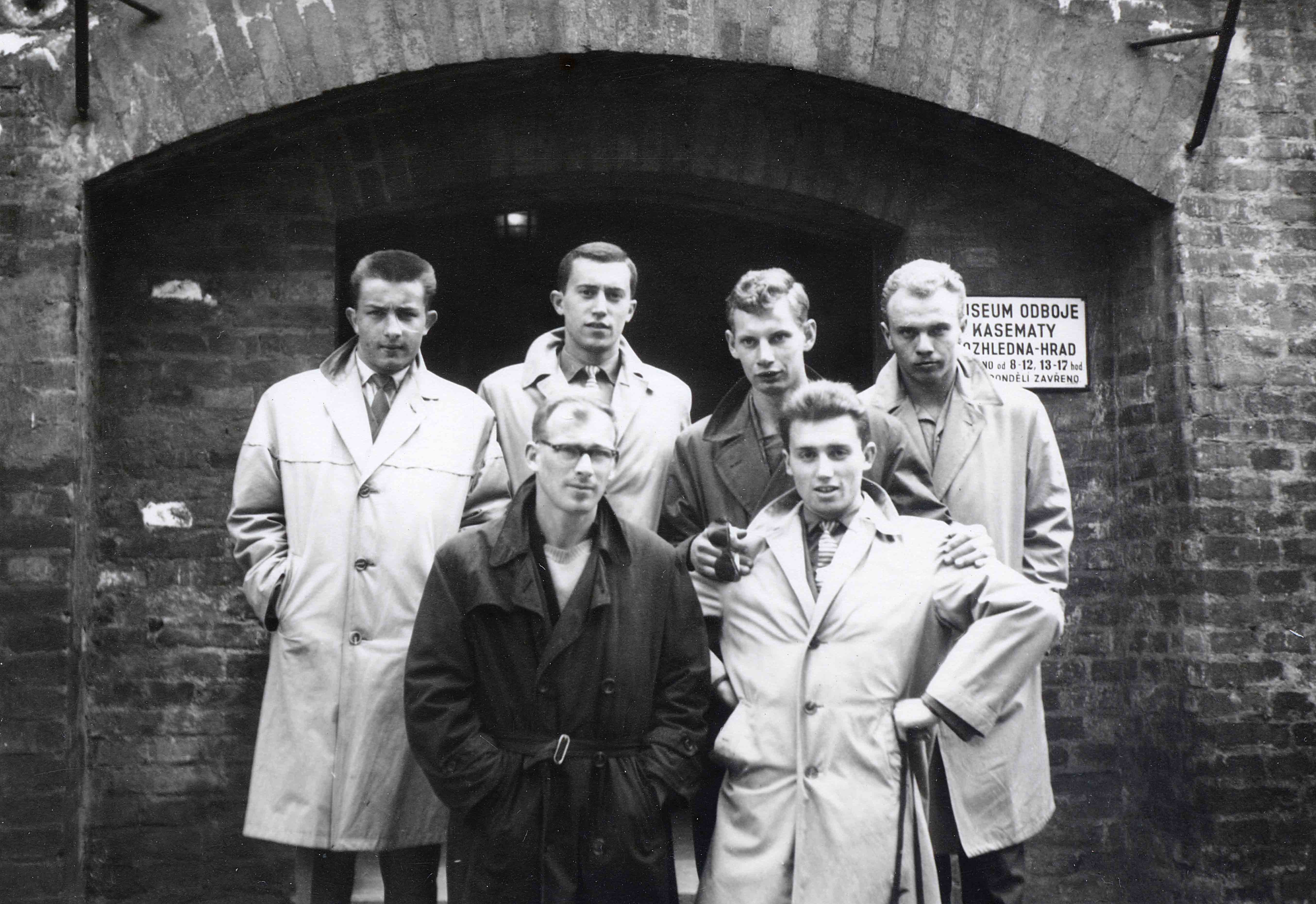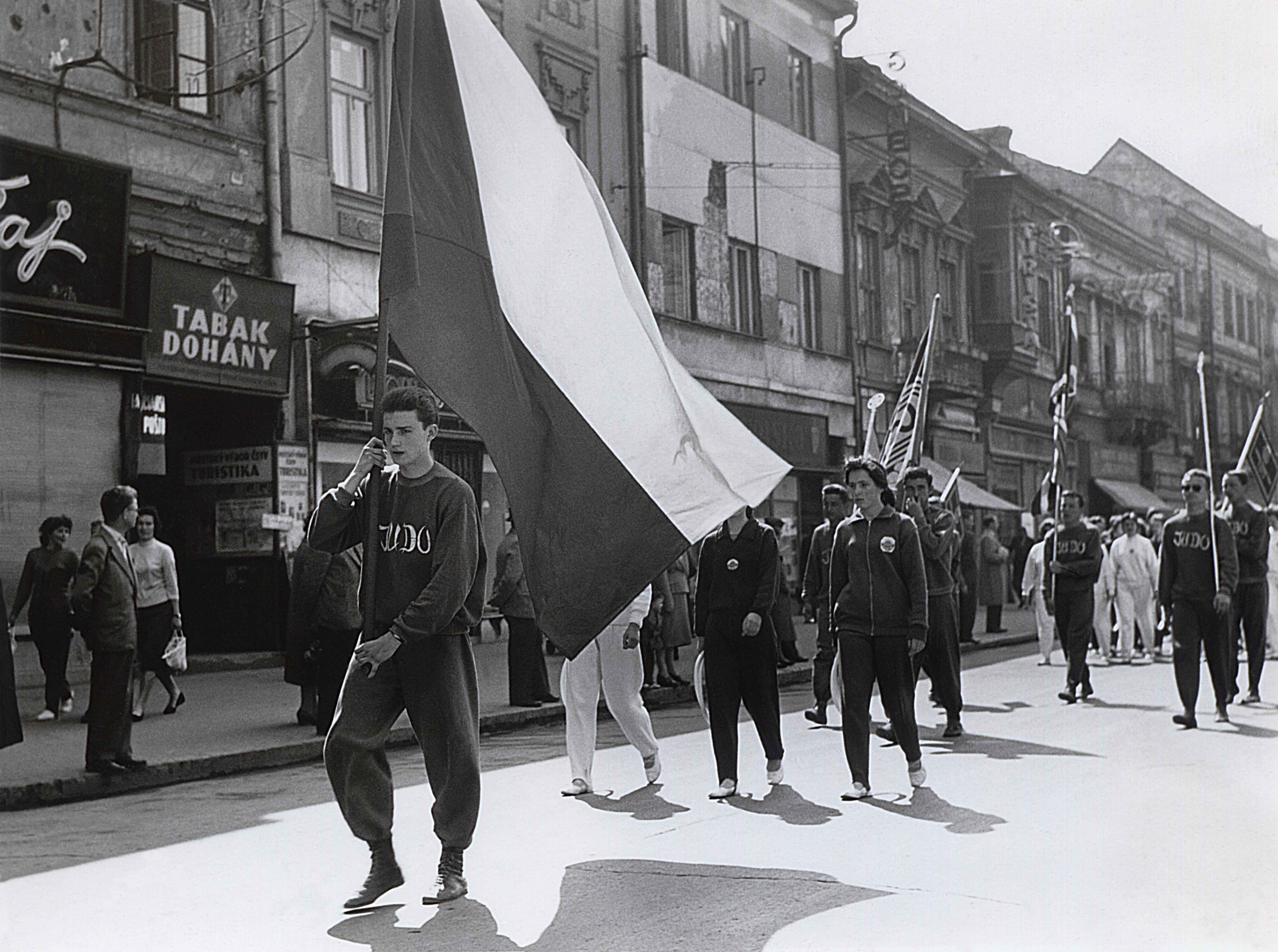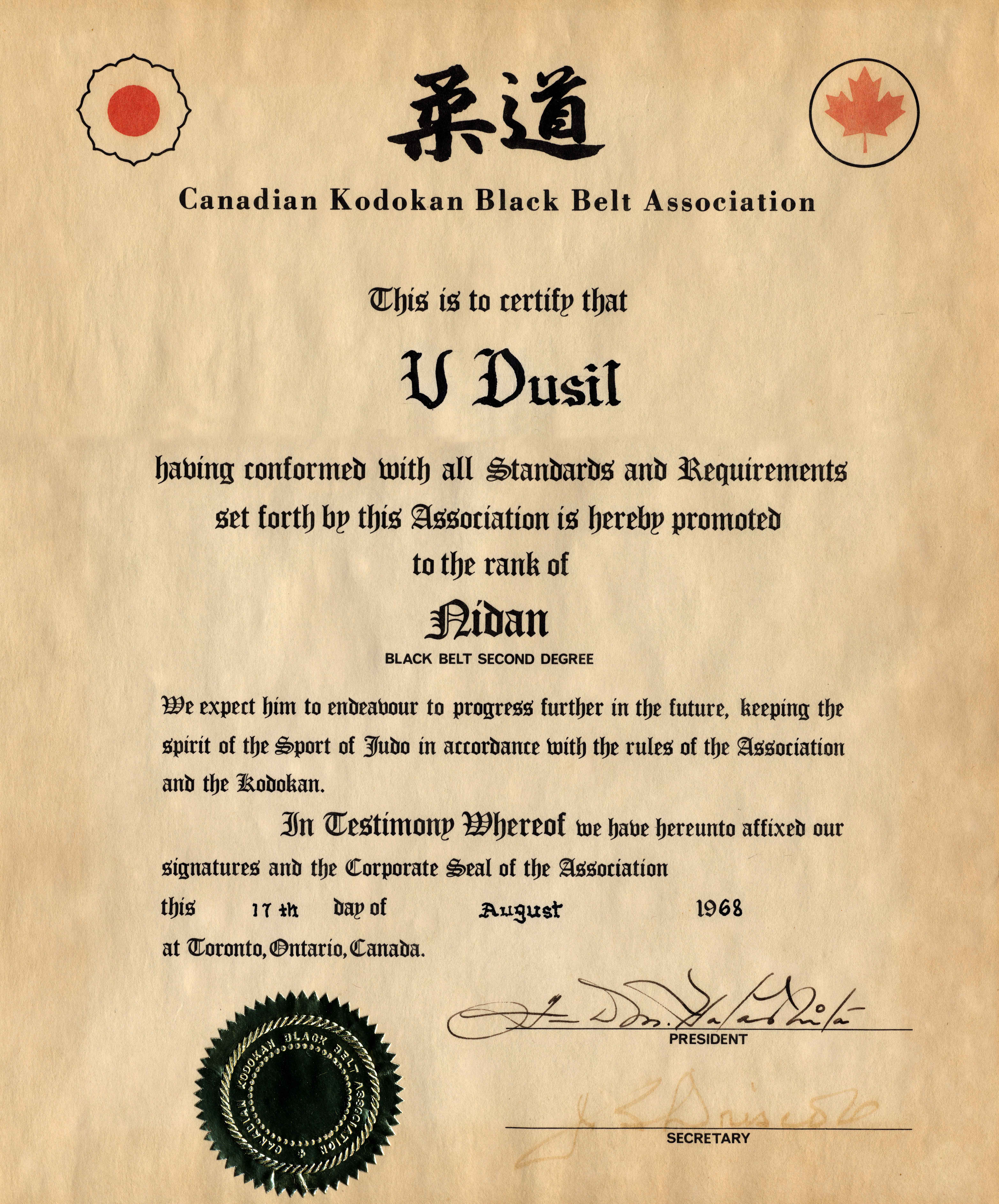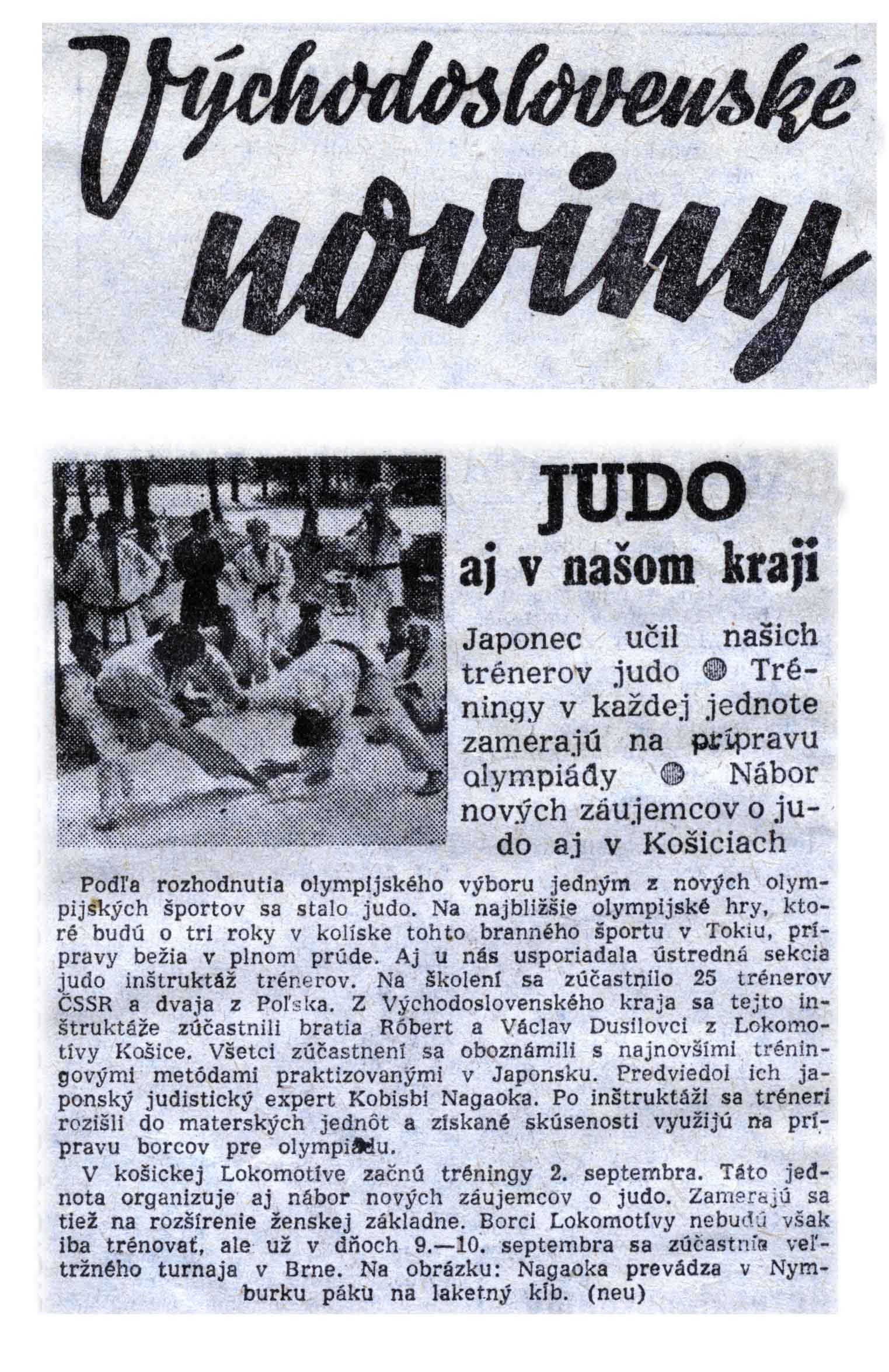• Throughout the 1960’s, both the men’s and women’s judo teams in Košice were far more cohesive than the opposition. During competition they routed for each teammate with far more enthusiasm and passion. It was partially due to their deep routed friendships. Perhaps it was also due to the financial and physical hardships they shared. The team members spent a lot of time on trains – Košice is situated at the extreme East of Slovakia (Czechoslovakia at the time). So traveling from Košice to any tournament was lengthy and taxing. A trip to Prague was over 700 km and took over 11 hours. They would typically travel on overnight trains, and compete the day they arrived. A sleeping car was out of the question, because it was too expensive. An overnight train meant sitting on benches in a cabin that would hold up to eight people. The judoka learned to sleep on overhead luggage racks, or in creative places where there was a chance to stretch out. Friendships survived decades, including post-emigration, and continue to be strong today. Members often participated in many extra-curricular activities, such as hikes, camping, or going to the movies. Many teammates were best friends – Karol Dusil, Pepo Vosecky, and Igor Fridrich were closest to my dad.
• Lokomotíva Košice was the rail company’s sport club. In the communist system, state factories sponsored various sporting sectors. So Lokomotíva had a sports organization spanning over 20 “oddiels” (translated as “sections” or “divisions”) – these oddiels were in judo, wrestling, boxing, European football, handball, basketball, etc. One perk for the judoka was relatively cheap travel costs. For instance, an express train ticket from Košice to Prague in the 1960’s would cost only 20 Czechoslovakian Koruna (around $1 American dollar in today’s exchange rate). That same retail ticket today costs €54 ($76 US$).
• Košice Judo
If you missed previous posts on Košice Judo, you can find them here:
- 2 • Košice Judo
- 4 • Košice Judo
- 7 • Košice Judo
- 13 • Košice Judo • Memories of Judo, I
- 17 • Košice Judo • Memories of Judo, II
- 24 • Košice Judo • Memories of Judo, III
- 41 • Taci & Gabičko • Judo & Karate
- 44 • Košice Judo
- 47 • Taci • Košice Judo
• Digital Photo Restoration
• 3 minutes 56 seconds
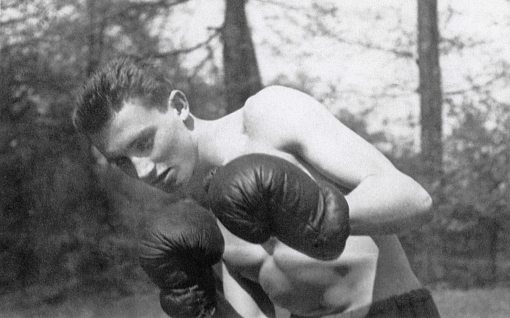
• My dad tried his hand at boxing before seriously taking up judo. When I was a kid I remember watching Mohammad Ali on television, with my dad growing up. I also had the privilege to accompany my dad to the 1976 Olympics in Montreal, Ontario, Canada. We attending judo and boxing events. I later learned that Larry Holmes had fought in one of them.
• 4 minutes 46 seconds
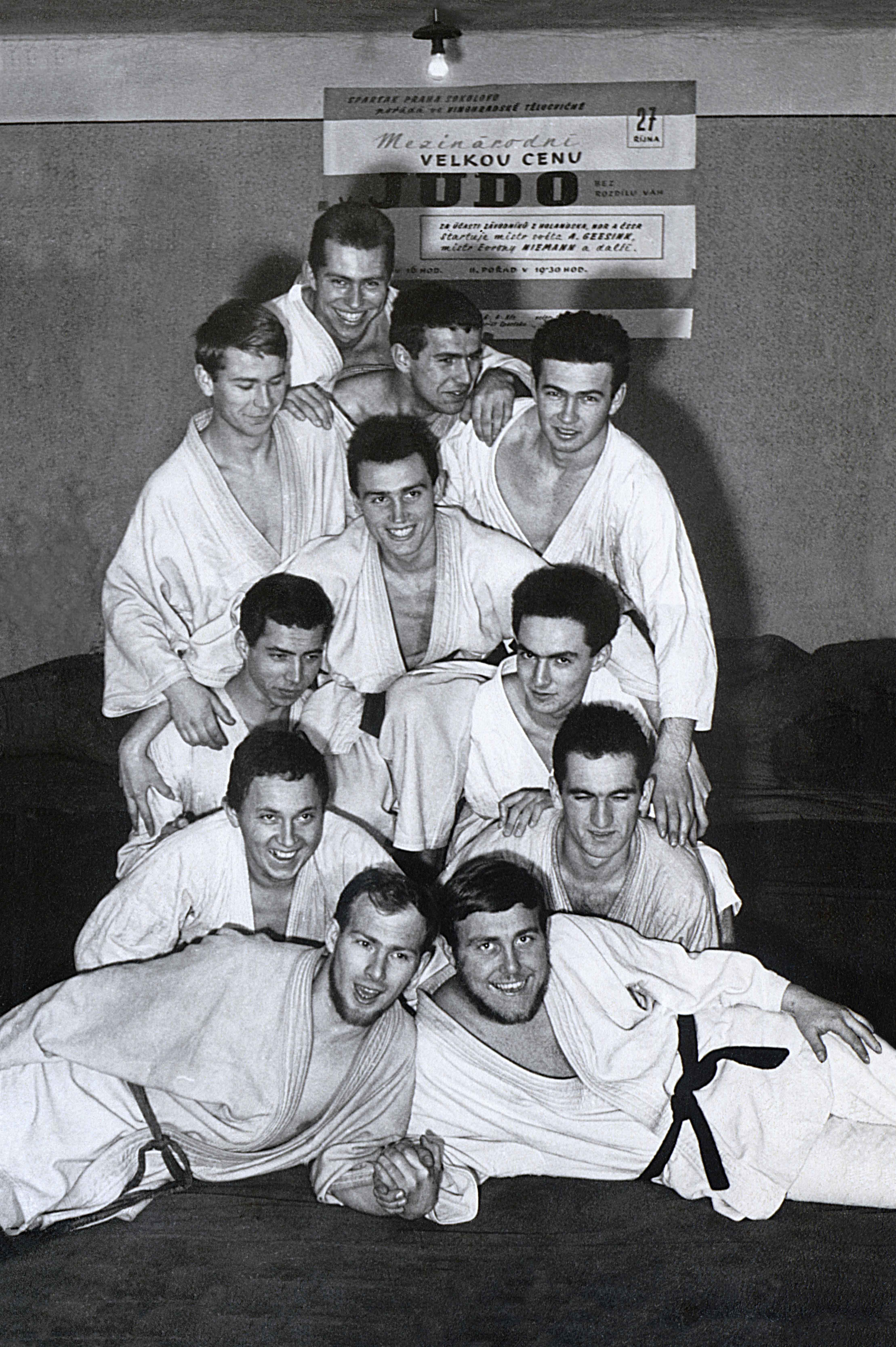

• 4 minutes 13 seconds
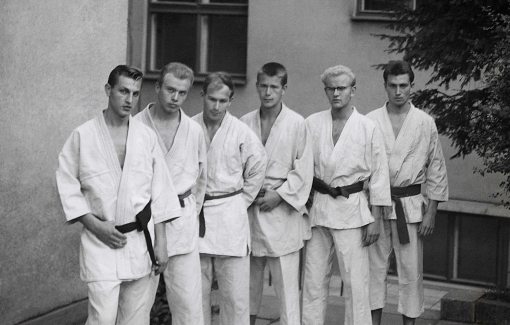
• This is the men’s Lokomotiva Košice team. In one tournament, Edo Novak scored a spectacular Ippon against the Czechoslovakian Champion Norbert Pomp using a Ura Nage judo throw.
• 5 minutes 50 seconds

• Standing (left to right) – Karol Dusil, Edo Novak, Csaba Kende, Mr. Gonda (secretary of the Lokomotiva Košice Sport Club), Ing. Robert Binder, Pavel Petrivalsky, Juraj Bialko, Dusan Halasz • Lower row (left to right) – Robert Dusil, Vaclav Dusil, & Joe Nalevanko
• Robert Binder was the founder of Slovak Judo in Bratislava in 1954. According to my uncle, he was a fantastic person and a great help to Lokomotiva Košice, and in the development of Košice judo. He “belted” my uncle from yellow to brown. Joe Nalevanko coached Slavia Košice, the second Košice Judo team, consisting of mainly engineering students, but Lokomotiva Košice also retained him.
• 3 minutes 32 seconds


• In 1965 my dad, Pepo Vosecky, Igor Fridrich, Vlado Makovsky and Stefan Bartus went to Split, Croatia (Yugoslavia at the time). They attended a judo tournament, competing in both individual matches, and five-member team competitions. In the spring of 1967 Lokomotíva Košice men’s team went to Leipzig, East Germany for another judo tournament and a reciprocal tournament was held later that year in Košice.
• Documents & Articles


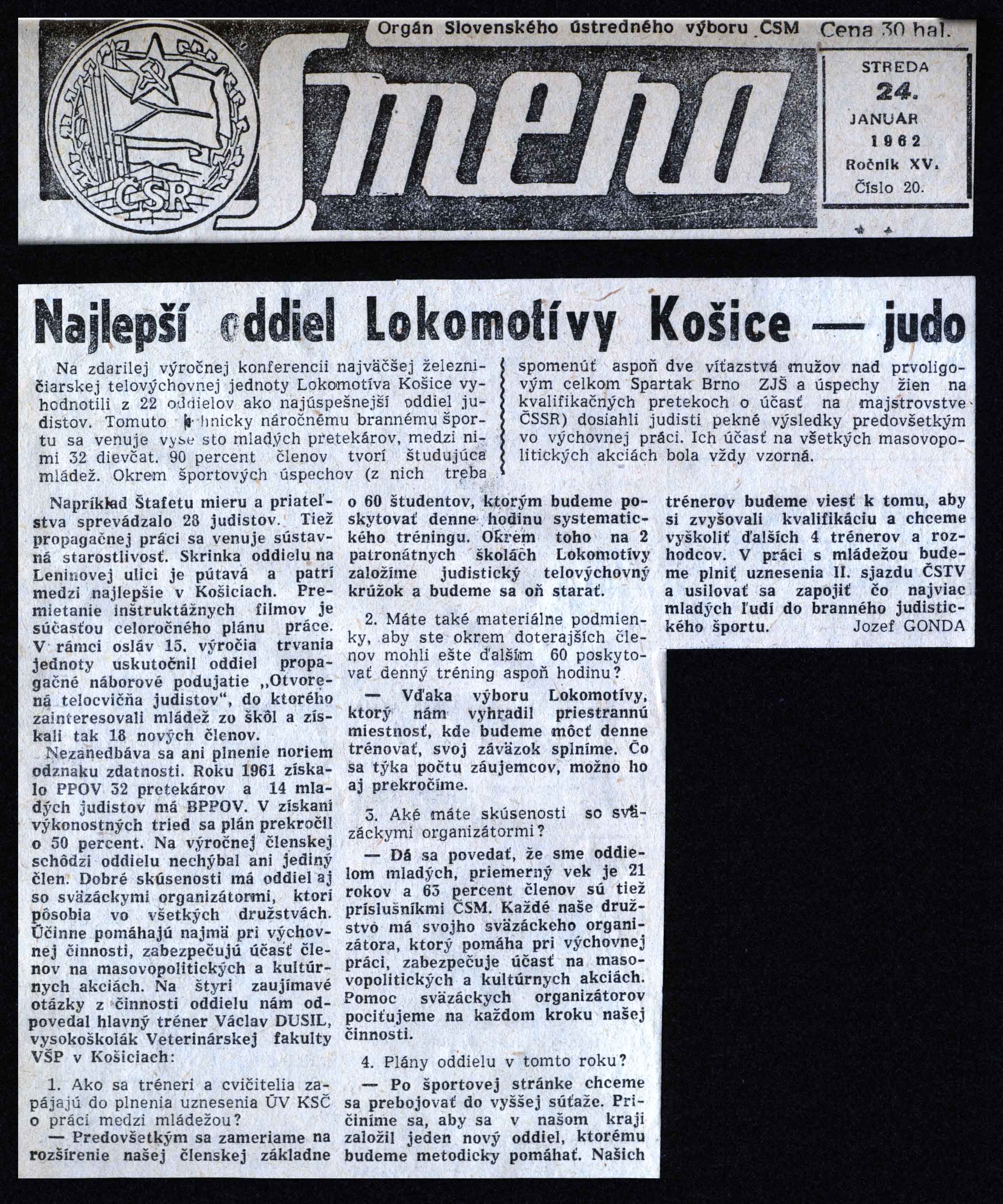
• Tags
Adolf Kostrian, Andrej Collak, Anna Collakova, Berco Allman, Csaba Kende, Czechoslovakia, Darina Poprenakova, Digital Restoration, Dusan Halasz, dusil.com, Edo Novak, Gabriel Dusil, Hluchan, Igor Fridrich, Ivan Spisak, Janosik Bastam, Joe Nalevanko, Jozef Arvay, Jozef Grusecky, Jozko Lemak, Julia Tothova, Juraj Bialko, Juraj Mazanek, Karol Dusil, Košice, Ladislav Kende, Lokomotiva Košice, Maria Collakova-Korytkova, Michal Korytko, Miro Brozek, Nyarjas, Orendas, Pavel Petrivalsky, Pepo Vosecky, Pista Oravec, Pozemné Stavby, Robert Binder, Robert Dusil, Sano Drabcak, Slavia Košice, Slavia Žilina, Slavo Sykorsky, Slezan Opava, Slovak Judo, Stefan Bartus, Ura Nage, Vaclav Dusil, Vašek Dusil, Vinohrady Bratislava, Vlado Babilonsky, Vojtech Agyagos







